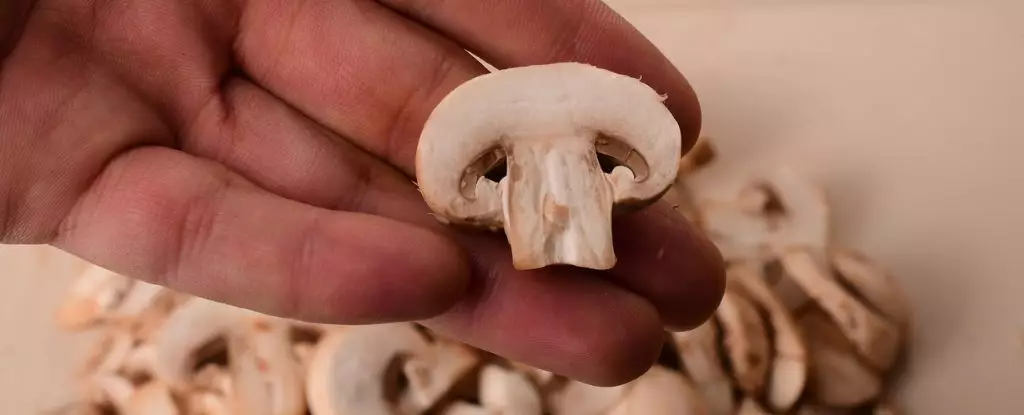Mushrooms are often relegated to gourmet dishes or casual culinary uses, yet their potential as medicinal agents is becoming increasingly promising. Amongst a spectrum of exotic fungal species celebrated for their health benefits, the white button mushroom (Agaricus bisporus) emerges as an unexpected contender in the realm of cancer research. While not traditionally associated with medicinal properties, contemporary studies suggest that even commonplace mushrooms may harbor compounds capable of contributing to immune health and fighting diseases like prostate cancer.
Prostate cancer is one of the most prevalent malignancies affecting men globally, and its typical treatment regimen includes surgery, radiation, and medication. However, these approaches come with significant side effects and varying success rates. Researchers are keen to explore complementary therapies that can enhance traditional treatment outcomes while potentially minimizing adverse effects. In this landscape, emerging findings regarding the white button mushroom’s extract reveal its potential to be a co-adjuvant in slowing cancer progression, opening new avenues for research and discussion.
The City of Hope, an esteemed cancer research institute in the United States, has spearheaded efforts to explore the capabilities of white button mushrooms. Their investigations began with a Phase I clinical trial where participants who consumed mushroom extract showed a marked decline in myeloid-derived suppressor cells (MDSCs)—immune cells that can inhibit the body’s natural defenses against tumors. For some participants, potent biomarkers of prostate cancer even dropped to undetectable levels.
Following this encouraging groundwork, researchers have now shifted the focus to more extensive Phase II clinical trials, scrutinizing blood samples from prostate cancer patients who have been treated with mushroom extract. The early data suggests promising outcomes, including a notable increase in anti-tumor immune cells. Such findings underline the notion that everyday foods can serve as vehicles for promoting health and combating diseases in ways previously underappreciated.
While the initial findings are encouraging, understanding the underlying mechanisms of how white button mushrooms exert their potential benefits remains a complex challenge. The extract may contain numerous biologically active compounds, including soluble fibers, proteins, and phytochemicals, all of which could play a role in modulating immune responses and directly targeting cancer cells. Scientists must endeavor to isolate these compounds and study their individual effects while continuing to prioritize safety and therapeutic efficacy in their trials.
The intricate dance of compounds within mushrooms, and their ability to impact various pathways involved in cancer physiology, makes it essential for ongoing research to delineate precise mechanisms of action. As noted by Xiaoqiang Wang, a scientist at City of Hope, although there are promising early results, the journey to fully understanding these effects is ongoing.
The evolution of scientific understanding surrounding dietary components as potential adjuncts to conventional medicine is a paradigm shift worthy of discussion. The idea of utilizing food not merely for sustenance but as a proactive strategy for health management—especially in battling diseases like cancer—could revolutionize the approach to patient care. Shiuan Chen, a cancer biologist involved in the City of Hope studies, emphasizes this transformative perspective, asserting that the integration of plant-derived substances could one day be commonplace in evidence-based cancer treatment protocols.
Such a shift would necessitate a reevaluation of both how healthcare providers and patients view dietary choices in the context of health and disease management. If studies continue to demonstrate efficacy, maintaining a diet that includes white button mushrooms, alongside traditional treatment methods, may ultimately empower individuals facing a cancer diagnosis.
While optimism abounds with the findings regarding white button mushrooms, it is crucial to approach this narrative with a balance of enthusiasm and realism. The FDA’s stringent regulations around dietary supplements and their medicinal claims highlight the challenges that lie ahead in translating these promising discoveries into clinically recognized treatments. As research continues, the focus will remain on substantiating the health benefits while navigating the regulatory landscape to ensure safe and effective applications.
The potential of the white button mushroom extends far beyond its culinary uses. As a symbol of hope, its therapeutic possibilities may herald a new era of integrative cancer care—a future where conventional medicine and nutrition coalesce in the fight against disease. As research evolves, perhaps the humble mushroom will take its rightful place among the venerated resources in the quest for better health outcomes.


Leave a Reply